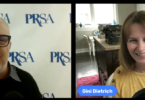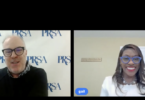“Ignorance is bliss.” That’s the phrase I come back to whenever I recall the Northridge earthquake that tore across Los Angeles County at 4:31 a.m. on Jan. 17, 1994.
I had recently moved to Los Angeles and was sound asleep when the tremors started. I didn’t know enough to run into the street, where my neighbors had gathered in various states of panic. Instead, I sat up in bed, fascinated by the soundscape: a freight train-like rumble, accompanied by banging shutters and rattling pots and pans – then a brief moment of silence followed by the shriek of car alarms and the barking and howling of freaked-out dogs.
I’ve been thinking of those moments, as I’ve watched the television footage of the devastation wrought in Haiti. It was my good fortune that California has the resources and programs to mitigate the effects of natural disasters, down to small things like rules about securing water heaters, so they don’t fall during earthquakes and snap gas lines, triggering fires. It has been sobering to reflect upon the circumstances of life, and how some of us have the good fortune to escape a calamity that befell our neighbors in an increasingly small world.
At the same time, the events in Haiti have also underscored the life-or-death importance of effective communications. In 2008, PRSA honored San Diego Mayor Jerry Sanders’ communications team with PRSA’s Public Relations Professional of the Year Award for its handling of communications during the San Diego wildfires in October 2007. Through the team’s efforts, the city was able to communicate vital evacuation, repopulation and recovery information in different languages to the widest possible audience – evacuees, the media, public officials, corporations offering donations, and the public – undoubtedly saving lives in the process.
While it is far too early to draw definitive lessons from Haiti’s still unfolding catastrophe, what will we have learned when we look back months and year from now?
- Will we think more realistically and pragmatically about the power and limits of today’s most popular communications channels? At the same time that millions of dollars were being raised for relief efforts via text messages, Tweets were ricocheting across the Twittersphere reporting supposedly free shipments by express shipping companies, or non-existent free flights for medical personnel to the beleaguered island.
- Will we be reminded of the importance and reach of traditional media? At the moment, a 100+ year old technology is emerging in Haiti as the most effective way to communicate, as groups gather around portable radios attached to car batteries to hear potentially life-saving news and information. Haitian community radio stations in the United States and even a flying radio station also are serving as key links in the communications chain.
- Will there be lessons for crisis planning experts? Some of the many heart-wrenching stories emerging from Haiti concern families who have lost touch with their children; might more of these families have found their kids on the opposite end of a cell phone call, given a Kaiser Family Foundation report that shows mobile media has driven a measurable spike in media consumption among children and teens?
As we help and hope, we can also learn. Together, let’s build our knowledge and tools, so that our profession is even stronger when the next disaster strikes. Here at PRSA, we’ll be looking to honor excellence in crisis communications, searching for relevant case studies and identifying best practices from which our members can learn; you can help, too, by sharing your thoughts.
William M. Murray is COO of PRSA.







Bill – this is a very important post. I would love to see a segment of the upcoming PRSA conference dedicated to the three bullets in your post. Thanks for sharing these thoughts.